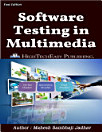Geographic Information Science: Third International Conference, GI Science 2004 Adelphi, MD, USA, October 20-23, 2004 Proceedings
Max J. Egenhofer · Christian Freksa · Harvey J. Miller
2005年1月 · Springer
电子书
348
页
report评分和评价未经验证 了解详情
关于此电子书
This section gives a description of notions used throughout this study. Current achievements in developing action-centered ontologies are also discussed. 2.1 Ontologies In the context of information extraction and retrieval, different kinds of ontologies can be distinguished [15]: • Top-level ontologies describe very general concepts like space and time, not depending on a particular domain, • Domain ontologies and task ontologies describe the vocabulary related to a generic domain or kind of task, detailing the terms used in the top-level ontology, • Application ontologies describe the concepts that depend on the particular domain and task within a specific activity. Several investigations have been conducted to bring actions (tasks) to bear on - tologies. Among them are Chandrasekaran et al. [6] and Mizoguchi et al. [23] in the fields of AI and Knowledge Engineering. For the geospatial domain, Kuhn [21] and Raubal and Kuhn [26] have attempted to support human actions in ontologies for transportation. Acknowledging the importance of human actions in the geographic domain, a research workshop was held in 2002, bringing together experts from diff- ent disciplines to share the knowledge and work on this issue [1]. Camara [5], one of the workshop participants, has proposed that action-driven spatial ontologies are formed via category theory, for the case of emergency action plans.
为此电子书评分
欢迎向我们提供反馈意见。
如何阅读
智能手机和平板电脑
笔记本电脑和台式机
您可以使用计算机的网络浏览器聆听您在 Google Play 购买的有声读物。
电子阅读器和其他设备
如果要在 Kobo 电子阅读器等电子墨水屏设备上阅读,您需要下载一个文件,并将其传输到相应设备上。若要将文件传输到受支持的电子阅读器上,请按帮助中心内的详细说明操作。








